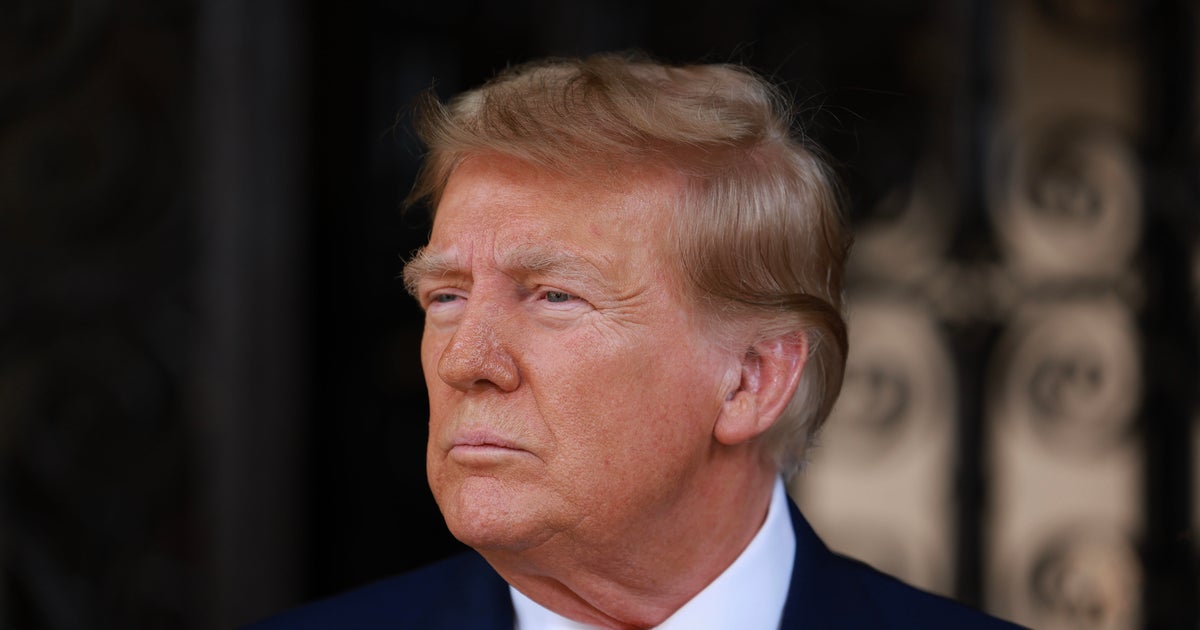
Washington — Former President Donald Trump has asked the Supreme Court to pause a lower court’s decision that rejected his broad claims of immunity from criminal prosecution in the federal case related to the 2020 election.
In a 110-page filing on Monday, Trump’s attorneys asked the justices to implement a “stay” of the ruling issued by a three-judge panel in the Court of Appeals for the District of Columbia Circuit. The panel said it would delay enforcing its ruling until Feb. 12 to give Trump time to turn to the high court.
Five justices are needed to approve Trump’s request for emergency relief.
Trump’s attorneys also told the D.C. Circuit that he will be asking the Supreme Court to review the panel’s decision.
The appeals court decision
The three appeals court judges — Karen LeCraft Henderson, Michelle Childs and Florence Pan — ruled last week that Trump was not immune from prosecution in special counsel Jack Smith’s criminal case against him. The judges rejected the former president’s argument that he should be shielded from the charges because the conduct alleged in the federal indictment occurred while he was in office.
“For the purpose of this criminal case, former President Trump has become citizen Trump, with all of the defenses of any other criminal defendant,” the panel wrote in its opinion. “But any executive immunity that may have protected him while he served as President no longer protects him against this prosecution.”
The judges wrote that they “cannot accept former President Trump’s claim that a president has unbounded authority to commit crimes that would neutralize the most fundamental check on executive power — the recognition and implementation of election results.”
Adopting Trump’s argument, they continued, would mean “the Executive has carte blanche to violate the rights of individual citizens to vote and to have their votes count.”
The appeals court panel said its ruling would go into effect on Feb. 12 unless Trump asked the Supreme Court for emergency relief, or if the full appeals court agreed to hear the case after the deadline.
A federal grand jury charged Trump last year with four counts stemming from an alleged attempt to unlawfully overturn the results of the 2020 presidential election. Trump pleaded not guilty to all charges and has denied wrongdoing.
The former president first raised his claim of presidential immunity in October, when he asked U.S. District Judge Tanya Chutkan, who is overseeing the criminal case in D.C., to dismiss the charges. Chutkan denied the request and Trump later appealed the ruling to the D.C. Circuit.
The trial schedule in Chutkan’s court has since been on hold. Earlier this month, she indefinitely delayed the March 4 trial date until the immunity question is settled.
It remains unclear if the Supreme Court will grant Trump’s forthcoming request to review the appeals court decision. The justices could decide not to hear the case at all and allow the appeals court’s rejection of Trump’s immunity claim to stand as the final word. Or they could pause the appeals court’s ruling and agree to take up the case, setting up another election-year showdown at the high court.
Smith asked the Supreme Court last month to leap-frog the appeals court and decide the immunity issue once and for all, but the high court declined to fast-track the case and instead let the appeals process continue.
The Supreme Court has never decided whether former presidents are entitled to criminal immunity for conduct that occurred while they were in the White House. Trump is the first former president in the nation’s history to be indicted.
